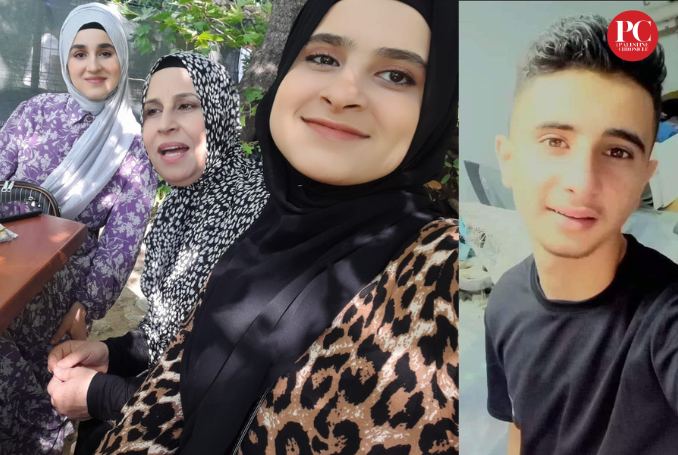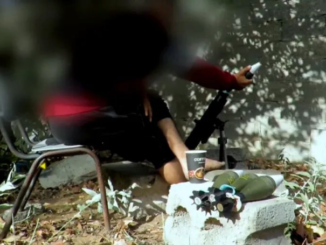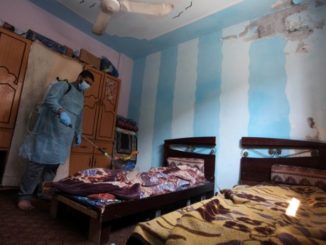
On February 6, 28-year-old Ali Mousa was asleep in his home, a long distance away from the deadly earthquake that just hit Turkiye.
Mousa, who had emigrated from Gaza to Britain in September 2020, woke up at 7:00 am to find a WhatsApp message from a friend, asking about his family members, who lived in Turkiye.
Mousa rushed to call his mother and three siblings who had also recently moved from Gaza, this time to Antakya, the capital of the Turkish Hatay Province, one of the areas most devastated by the earthquake. No one answered.
“I was not particularly scared, in the beginning. They had just moved to Antakya and their internet connection was not stable. Also, I wasn’t expecting the earthquake to be as strong as it was,” Mousa told The Palestine Chronicle.
As time passed, however, he became increasingly worried.
“After watching the news and the videos, I started getting really scared, because I was not able to reach them,” Mousa said.
In an attempt to find out any news about his family, Mousa reached out to acquaintances in Turkiye. He also called his brother-in-law in Belgium. He had been recently granted asylum, so he had the opportunity to travel to Turkiye.
Mousa wanted to go to Turkiye and look for his family himself, but he was unable to do so without jeopardizing his application for asylum in the UK. His four brothers were in a similar situation, as they were seeking asylum in the UK, Belgium, and Canada respectively.
When Mousa’s brother-in-law arrived in Hatay Province, three days after the earthquake, he went directly to the seven-story building where the family had resided, only to find out that it had completely collapsed. The family’s apartment was on the first floor.
“It was traumatizing to hear that the building had collapsed,” Mousa said. “On that day, my brother-in-law found their passports and other personal items but he couldn’t find them.”
“We were terrified, but we tried to stay hopeful. We thought maybe they were in a hospital or in a shelter center. However, the only two people who managed to escape from the building insisted that no one else had survived.”
Despite everything, Mousa’s brother-in-law and friends spent three days searching alone through the rubble, hoping to find any trace of the family. Unfortunately, they did not have the required equipment to remove the massive amounts of debris. And it took days for the rescuer workers to reach that region in Hatay.
“The rescue workers arrived after six days. After three more days, they found the bodies of my family members. They were in the stairwell, all close to each other. Maybe they tried to run but they couldn’t,” Mousa said, his voice choking as he held back tears.
“After nine days under the rubble, we expected their bodies to be unidentifiable. However, my brother-in-law was able to recognize them.”
From Gaza to Turkiye
When Mousa’s mother, Insherah, and her three siblings, Majd, 16, Rasha, 18, and Abdallah, 14, traveled to Turkiye in the fall of 2022, they were full of hope.
Majd sought treatment for her bad hips. They all hoped they would eventually be able to emigrate to Canada.
“They wanted to live in Canada to have a decent life after all the suffering in Gaza, as my family struggled with poverty, due to the Israeli siege and the dire economic situation in the Gaza Strip,” Mousa explained.
Mousa’s father was supposed to reach his wife and children after closing down his feed and poultry supply business in Gaza. As soon as he arrived in Turkiye, the plan was for the whole family to travel to Canada.
In fact, Mousa’s father was already in Egypt, on his way to Turkiye, when he received the very tragic news of the death of his wife and children.
No Burial in Palestine
The family would have liked for the bodies to be buried in Gaza, but they soon discovered that this wish was impossible.
The Turkish authorities rejected the family’s request because the emergency created by the earthquake made transportation extremely complicated.
Mousa’s brother-in-law was the only family member who was able to attend their burial.
“I wish I can be granted my asylum soon so that I can visit their graves and recite Al-Fataha,” Mousa said.
“I also wish to see my father and siblings. We need each other in these difficult times.”

Lubna Abuhashem is a freelance writer and translator from Gaza. We Are Not Numbers contributed this article to The Palestine Chronicle.







